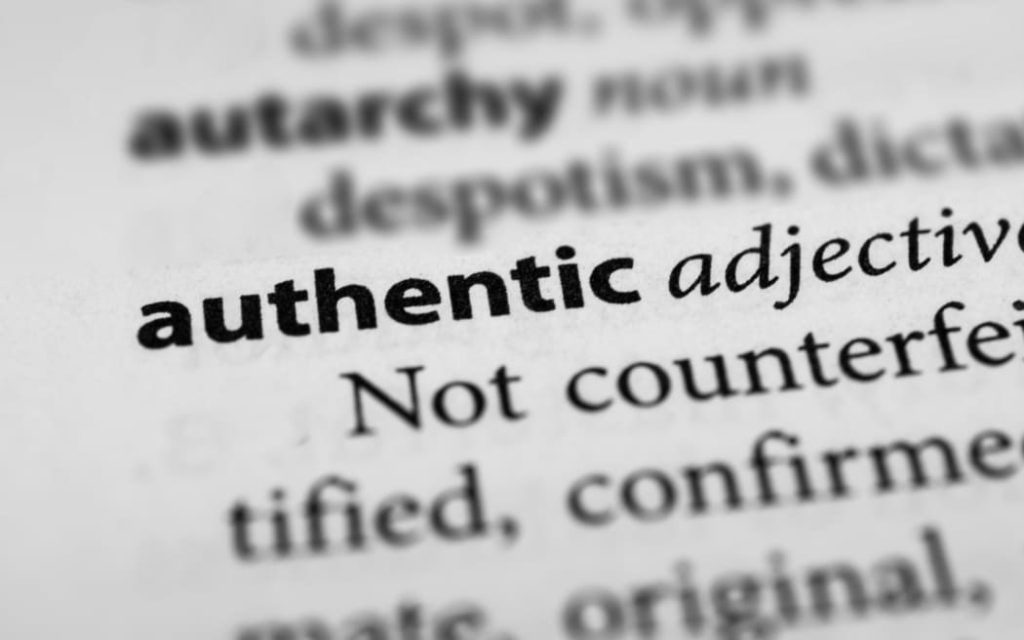
authentic: not false or imitation; true to one’s own personality, spirit, or character; made or done the same way as an original – Merriam-Webster Dictionary
The Merriam-Webster dictionary company has named the word “authentic” as the 2023 word of the year.
In explaining its selection of the word “authentic” Merriam-Webster stated it was “the term for something we’re thinking about, writing about, aspiring to, and judging more than ever.” Additionally, they said, “A high-volume lookup most years, authentic saw a substantial increase in 2023, driven by stories and conversations about AI, celebrity, culture, identity, and social media.”
The selection of the word “authentic” is somewhat telling in an age when so much of what is taking place around us seems to be far removed from it. Mirriam-Webster cited AI, celebrity, culture, identity, and social media as factors. And why not? With a culture consumed with these things, authenticity is replaced by the fake and the trickle-down effect is widespread. Before long, it becomes increasingly challenging to distinguish between the two.
Psychologist Adam Grant states, “Authenticity is not about being unfiltered. It’s about staying true to your principles.” I agree with his assessment. And it’s why as leaders we must set the standard for authenticity. If authenticity is not found in us as leaders, then how can we rightfully complain about what the void is replaced with?
In a study about authenticity in the workplace, a study published in Jobsage found that most people believed that their companies were authentic. But when pressed, more than 3 in 5 said that they were “currently hiding at least one thing about their identity from their employer”.
Key takeaways from the study revealed:
- Most often, employees hide political views (37%) and information about their families (36%)
- Over half say not being authentic at work impacts their mental health
- More than 3 in 5 say that after being authentic they were treated differently at work, most often being treated unkindly or ignored
As leaders, I hope that on all fronts we are modeling what healthy authenticity looks like. Here are a few ways in which we can make it happen.
Define your core values
You can only live out what you believe when you know what you believe. What are your non-negotiables? Your core values are first and foremost an inside job. When your values are clear to you, then you can live them out, but not until then.
Keep it real
Being authentic is a discipline. It’s about being your most real self – not being over the top or over-compensating, but naturally comfortable in your own skin. Authenticity is being “true to one’s own personality”. Authenticity is not about trying to be many things to many people but being the same person to all people. Click To Tweet
Practice honesty and transparency
This is where the rubber meets the road. Your authentic self is revealed more by these two things than anything else. It will make you vulnerable, but isn’t that the essence of authenticity? Being honest and transparent is not for the benefit of those around you – although it matters. It has everything to do with being true to yourself.
Be courageous
There’s nothing more wonderful than embracing your unique authentic self. Be true to it, value it, hold tightly to it, but always remain humble and willing to grow. It doesn’t take much courage to be like everyone else, but to stay true to your values, you must be courageous.
Final Thoughts
Writing in Life, the Truth, and Being Free, Steve Maraboli writes, “There is nothing more beautiful than seeing a person being themselves. Imagine going through your day being unapologetically you.” And isn’t that the goal of authenticity?
©2023 Doug Dickerson
